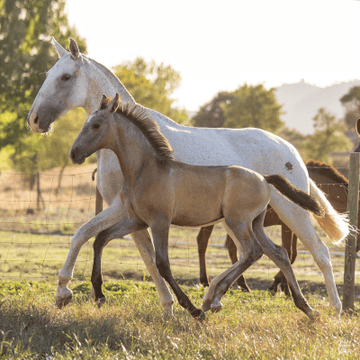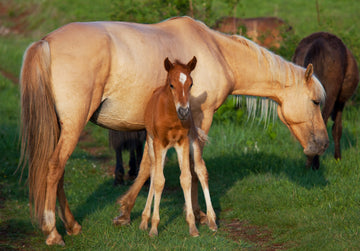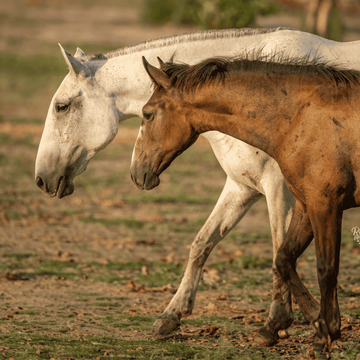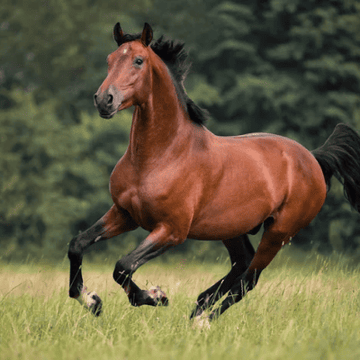Foal nutrition is a key factor in their development and in the prevention of disease. Only with a balanced diet can a foal's growth and development fulfill its genetic potential.
Before Birth
Foal nutrition begins in the womb (fetal nutrition), making it essential for the mare to follow a balanced diet throughout pregnancy. The mare's nutritional needs increase, especially in the last trimester, and must be met to support proper fetal development.
After Birth
After birth, the newborn foal begins to perform energy-demanding activities. Since its endogenous energy reserves are limited, it relies on colostrum to obtain the nutrients required for these functions.
Colostrum is the foal’s first food, and early intake is essential for nutritional, immune, and intestinal development (it also has a laxative effect).
Up to around three months of age, the nutritional needs of the nursing foal are met by mare’s milk, which varies in composition throughout lactation. From this point on, the foal should begin to supplement its milk intake with pasture and/or a specific compound feed.
Creep Feeding
The supplementation of a nursing foal with a compound feed, selectively provided through creep feeders or dedicated feeding areas, is known as creep feeding. This practice helps the foal:
-
Get used to solid feed
-
Develop feeding autonomy
-
Reduce weaning stress
Creep feeding should be introduced gradually from around eight weeks of age. The amount of compound feed provided should vary according to age, breed, and feed composition. For example, a foal under four months may receive between 0.5–1.0 kg per 100 kg of body weight.
Compound Feed Selection
The feed must be:
-
Specifically formulated for foals (or for mares and foals)
-
Rich in high-quality protein (especially lysine, a limiting amino acid)
-
Have appropriate levels of calcium, phosphorus, copper, and zinc
Orphan Foals
In orphan foals, the importance of colostrum intake in the first hours of life remains unchanged. Afterwards, options include:
-
Bottle or bucket feeding with milk replacer
-
Adoptive nursing, if a foster mare is available (e.g., one that lost her own foal)
For orphan foals without a foster mare, solid feed can be introduced at two weeks of age, using:
-
Specific compound feed
-
High-quality hay
This is done in complement to milk replacer. Weaning in such cases should occur between 14 and 16 weeks of age.



